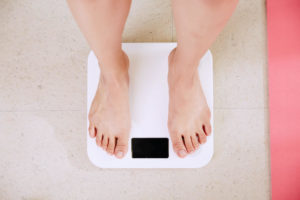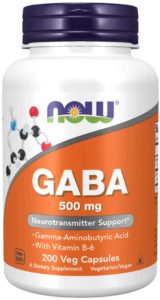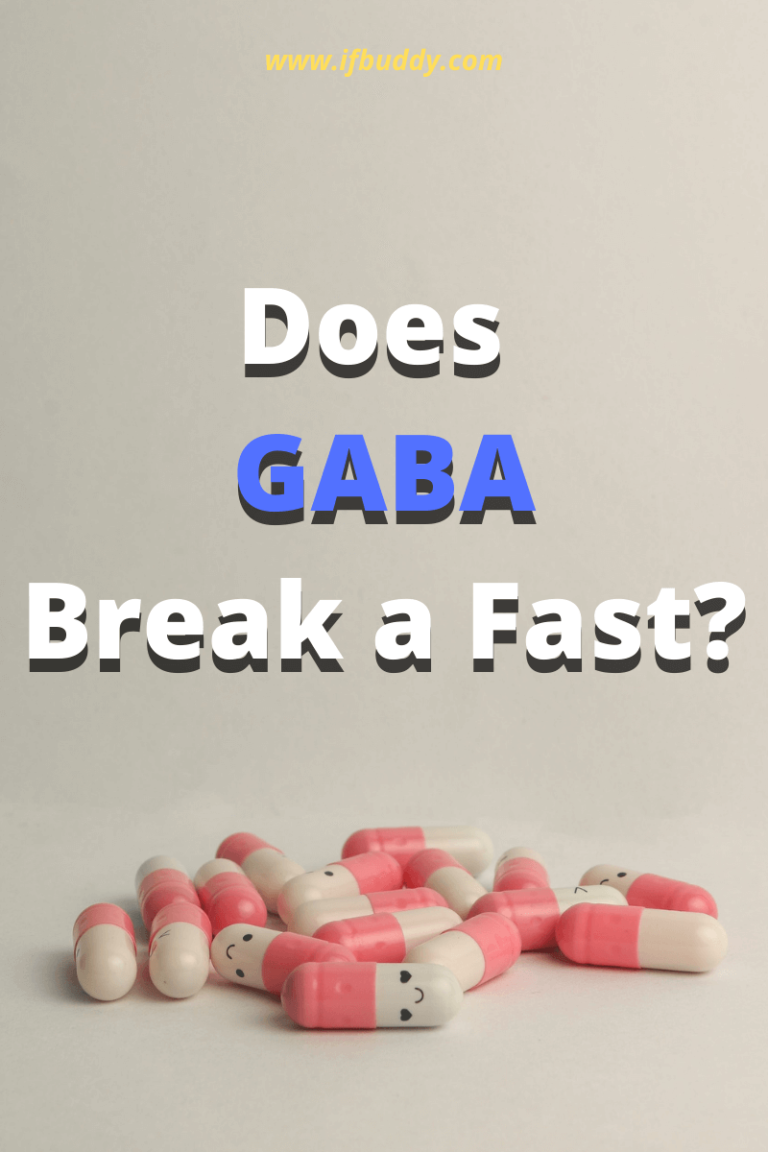Supplements and intermittent fasting are topics that seem to cause a never-ending debate. Some say as long as the supplement has no calories it is safe while fasting. Others say you should stay away from any nutrients during a fast, including all supplements. One controversial supplement is GABA, a natural chemical that is produced in the brain and that has anti-anxiety properties. But, does GABA break a fast?
GABA is an amino-acid, so if your fasting goal is autophagy, you should probably stay away from this supplement. In the same way, there is a risk it will break your fast if you’re fasting for gut rest. What about those who are fasting for weight loss? In theory, if the supplement has no calories, there shouldn’t be an insulin response. But things can be a little more complicated with this amino-acid.
So let’s explore the topic of GABA supplements and see what their benefits are, their side effects, and how they can influence your fast.
Does GABA break a fast?
First of all, you need to keep in mind, there are no medical studies performed with this question in mind. However, there are several studies regarding how amino acids affect autophagy or how GABA influences blood sugar and insulin production, so we can draw some conclusions from there.
Those fasting for autophagy are generally advised to stay away from all amino acids. GABA, also known as gamma-aminobutyric acid, is an amino acid, so it could break autophagy. In the same way, supplements in this category are a ‘no’ for those fasting for gut rest. GABA is a fairly different supplement as opposed to BCAAs for instance, However, if you want to be on the safe side, you should avoid Gaba during your fast.
If you’re fasting for weight loss or blood sugar management, you’ll find a more positive answer. GABA on its own should not impact this type of fast. Studies have shown GABA supplementation could actually boost fat loss and may improve insulin sensitivity, which is helpful for those suffering from diabetes.
Will GABA help intermittent fasting?
Yes, there are ways in which GABA can help intermittent fasting. Its main use is as an anti-anxiety supplement. It also promotes relaxation and can help you sleep better. While many claim intermittent fasting helps regulate the circadian rhythm, some find the opposite effect. That is usually because the body perceives fasting as stress and it releases more cortisol, which in turn keeps you on high alert. The more cortisol you have, the harder it will be to relax and have a good sleep.
Low levels of GABA have also been linked to high anxiety and sleeping disorders. So supplementing will help you manage anxiety and stress because it will have a calming effect that in turn can help you feel more rested. But how does that help your fast? Poor sleep has been linked to increased appetite and cravings, especially for carbohydrates. So getting a good night’s sleep will help you control your cravings and make fasting a lot easier.
GABA benefits
Reduces anxiety
This is the number one use of GABA supplements. Several studies have shown that supplementing with GABA can produce changes in the alpha waves, which bring a sense of calm, lower anxiety, and lower panic.
Reduces hypertension
Another one of its benefits, which is proven through clinical studies, is that it helps you manage hypertension. A clinical trial looking at patients with mild hypertension observed that those taking 80 mg of GABA per day had a significant drop in blood pressure as opposed to the control group. In other words, Gaba supplementation reduces the risk of strokes, heart attacks, or heart failure, which are all complications of hypertension.
Lowers the obesity risk
Another potential benefit is that it lowers the risk of obesity. That’s because GABA encourages fat loss and improves insulin sensitivity. Insulin resistance is one of the top causes of obesity, so by improving insulin sensitivity, GABA helps lower this risk.
GABA side effects
All supplements can have side effects, and GABA is no different.
It may cause anxiety
Too little GABA causes anxiety, but so does too much of it. It is a phenomenon called ‘paradoxical anxiety’. To avoid it, you should start with the smallest dose. If you don’t have any side effects after a while, you can increase the dosage slowly. Each time you do this, wait a few days to see how your body reacts. If no side effects are present and you feel the effects of the supplement could be better, you can increase the dose a bit more.
Never take more than the maximum recommended dose, even if you feel no improvements. It may simply mean this is not the supplement you need and going over that quantity will increase the likelihood of side effects.
Skin reactions
The most common skin reactions include tingling and flushing. These effects should be short-lived, they should subside after a few days and are due to the effect GABA has on the nervous system.
Digestive issues
A rare side effect includes digestive issues such as nausea, bloating, or even diarrhea. If you experience these side effects, stop the supplement until they subside. If you want to restart it, try taking a smaller dose.
Our recommended GABA product

The most reliable product GABA capsules are from “NOW”. They are vegan and contain vitamin B-6. It is instructed to take it with water/juice (you should take water) on an empty stomach, which makes it perfect for intermittent fasting. This way you can also take the supplement during your fasting state.
Pros & Cons
Pros
- Contains Vitamin B-6
- Non-GMO, made without gluten or Kosher
- Vegan/Vegetarian
- NPA A-rated GMP certification (every aspect of the NOW manufacturing process has been examined, including our laboratory/testing methods)
Cons
- You might get a headache if you take too many capsules
The bottom line
Does GABA break a fast? Yes and no. If you’re fasting for autophagy and gut rest, there’s a risk GABA will break the fast, as most amino acids (for example Glutamine), do. However, if you’re fasting for weight loss and blood sugar management, GABA supplements are in theory safe.
Taken as a standalone supplement, without other amino acids or proteins, GABA has no calories and no carbs, so it shouldn’t cause an insulin response. In fact, it may promote fat loss and help reduce insulin resistance, which in turn reduces the risk of obesity.
Don’t forget that GABA, like any other supplement, can have side effects, so make sure you never go over the recommended dose and if you experience any issues, stop using it.

